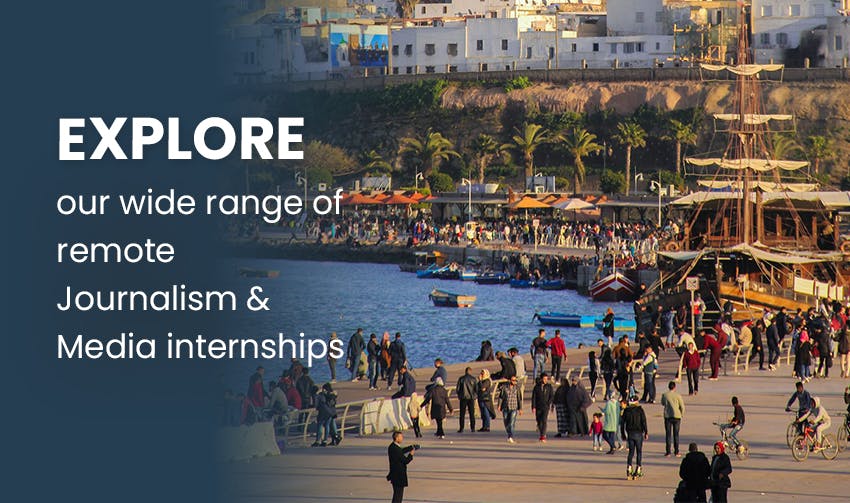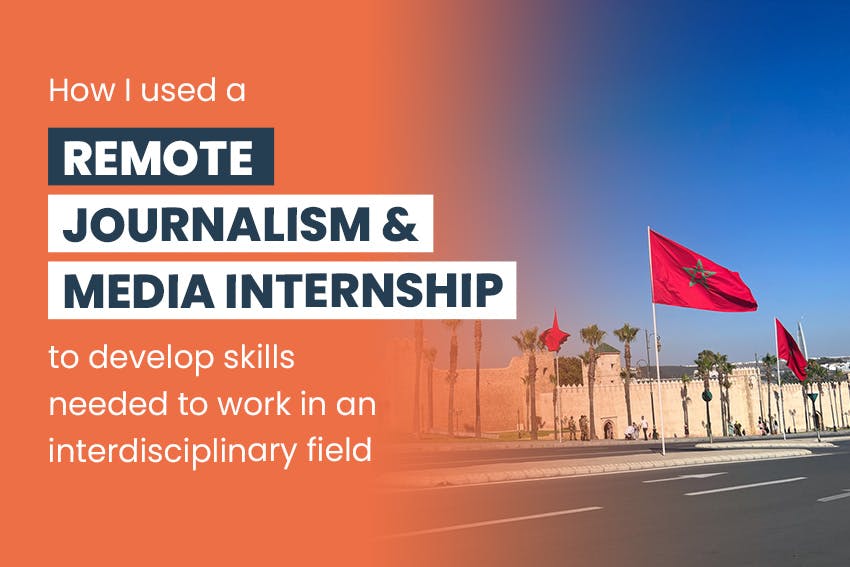
Not sure what career you want to pursue? Don’t worry! Many college students use RISEWAYto explore interdisciplinary options, gaining transferable experience and skills. Ana shares her experience with us, how she signed up for a remote Journalism & Media internship, to explore her interests further. Read on to get inspired and learn more about what to expect, as a remote intern!
Hi Ana! Why did you choose to do this remote Journalism internship?
I signed up for this remote internship during my second semester of my Freshman year of university. I’m not sure what career I want to pursue, so I chose this internship to explore my options through the lens of multicultural-based writing; I believe it provided a good integration of the skills needed to work in an interdisciplinary field. I was put in situations where I had to write about complicated topics within a short deadline. I was pushed beyond my limits in an international journalism field, and this is exactly what environment I wanted to be immersed in as an intern exploring my interests.

Can you tell us about the internship role and your responsibilities?
I interned remotely as a writer and editor for a Moroccan English language e-newspaper, which has headquarters in both Rabat and Washington, D.C. They aren’t any different from The New York Times, for example, with their intentions. It’s just mainly based in Rabat, Morocco.
Regardless, this placement required me to pitch and write feature articles regarding Morocco life, culture and politics. Furthermore, I had to take on assigned features by the managing editors with tight deadlines and be ready to communicate with a global editing team. These features were published in their mainstream online newspaper for both Moroccan and global audiences.
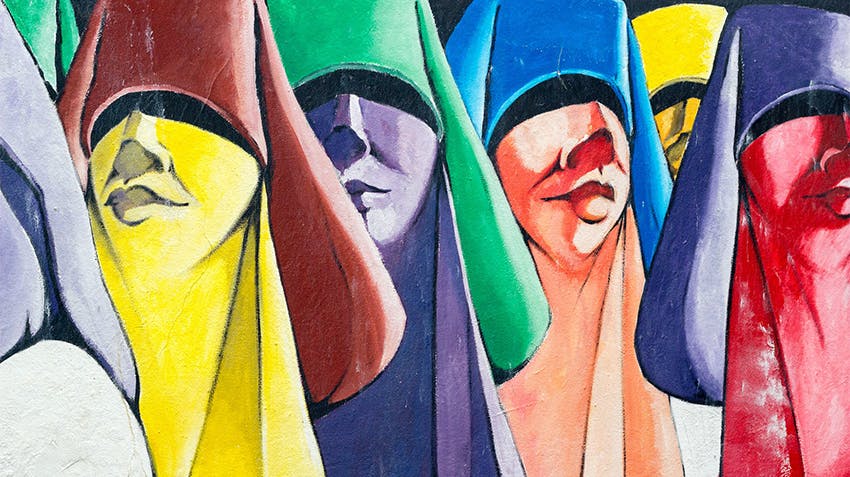
As a remote intern, how were you able to develop relevant media content?
I am Middle-Eastern and based in the US, so I feel that I don’t know enough about my own background. That’s why I committed to this particular remote internship opportunity - to expand my multicultural perspective through writing and editing media.
I was very nervous since I wasn’t physically in Morocco. When creating pitches for the culture, lifestyle, and sports panel, at first, I struggled at first, so I had to find a way to write effectively without feeling the need to fly to Morocco for an article topic.
However, I came to realize that I can explore and report on Moroccan and Middle Eastern culture within my own environment by documenting Moroccan life in Manhattan. My advisor also gave me some suggestions and I found Morocco-related topics that I could explore either online or even in New York City. For example, I was able to take my friends with me to visit Moroccan artworks and museum exhibits, ultimately creating a little fun field trip that I can look back on.
I also wrote features that encompassed present Moroccan political advancements and cultural events through the availability and analysis of video media. It was memorable to realize that I could establish future article pitches that related to a multitude of facets within Morocco, even though I was interning remotely. It was a cool realization that everything is very interconnected.

What was a highlight of this unique opportunity to express your own views?
The majority of my published feature articles were able to connect American and Middle Eastern audiences. I think my favorite part was when one of my published feature articles was shared on LinkedIn. A lot of people responded well to the article titled “Morocco’s Influence on Hollywood Filmmaking.” I gained a lot of support, and it was nice knowing that my work is able to influence others, or at least is capable of informing the world about current events.
Even more so, I wrote articles about Middle Eastern artists, politics, and forms of media that haven’t received as much attention as others. With that said, I think that my overall focus was on the voices in the media that haven’t been amplified as much as they should have.
My proudest accomplishment was writing a Middle Eastern political feature within a span of three days. I was able to write objectively, simply with the intention to report the facts, not opinions, of a current event in the political spectrum.
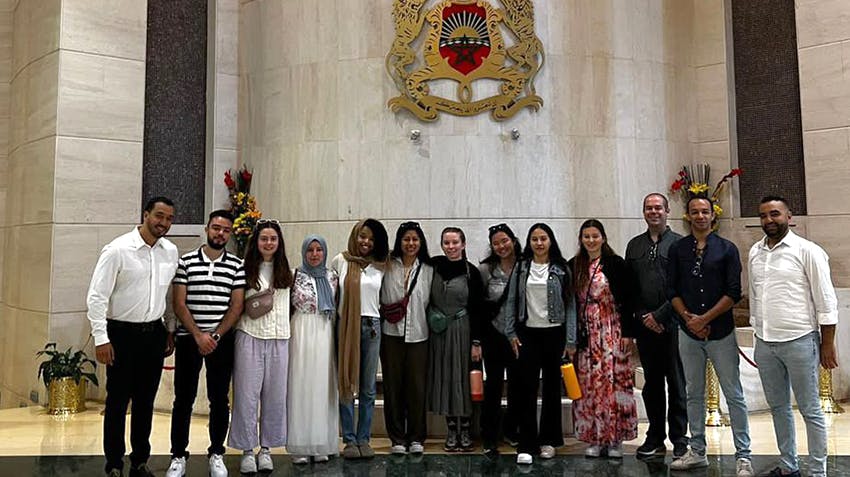
What support did you get from the supervisor or colleagues during this internship?
Before starting, I was very nervous with this internship because I would be working under an international news anchor. I’d never written for such a platform, and I am only a freshman in college.
However, my supervisor didn’t require a mountain of work to be done all at one time. She took it very slowly and I also communicated with a lot of people: editors, my supervisor, the managing editor, and another intern for Morocco World News. I received many edits for my first article, and my supervisor supported me in my ideas for my future projects. We talked about my own cultural background to help steer my work in the direction of my own knowledge and strengths.
Understanding how the editing process functions is one of the most important aspects of interning at a newspaper, so within the first two weeks, I figured out who to turn to for specific comments and advice regarding my articles. I communicated with one to work on my culture features, another to discuss my pitches, and another to accept projects and tasks in regards to Moroccan politics.
The editors took their time to help me with my internship, so it was only right that I showed that I was putting in the time and effort too. Knowing and interacting with them led me to create better features that ultimately received more traction and online attention.
What challenges did you encounter and how did you overcome them?
Since this internship was remote, there were moments that I believed would have done better if I were interning in-person. However, because of COVID-19, many careers have moved fully online, even after most of the pandemic restrictions died down. Therefore, while I experienced difficulties at times, I learned how to better manage my time with both school, this internship, and extracurriculars.
My supervisor and the other editors did a great job in keeping in touch with me, and I responded as quickly as I could. I think there was a little miscommunication sometimes, but I don’t think that it was that much of a big deal. Being on opposite sides of the world, it was pretty flexible. I kept editors updated to keep the process running as smoothly as possible.
There were moments where I felt less empowered because different journalism platforms approach their work differently. I understand that I have to adapt to different mediums if I want to evolve into a good writer, but it can be hard knowing that you just might not fit with particular mediums.
This being said, I do feel more satisfied when I do publish a well-written feature. I suppose it’s a hit or miss with every article I write, and it can be discouraging when it takes a lot longer for me to publish work, when comparing myself to others around me working within the same field.
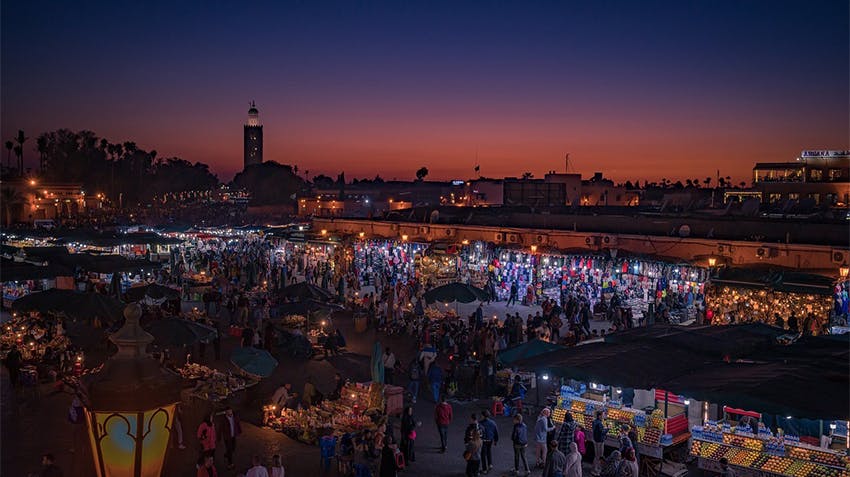
What advice would you give to other interns, preparing to do this program?
I would remind others that it’s better to be over prepared than under prepared. Having too much information that you should cut is better than trying to find more information in a limited amount of time.
Also, don’t wait for the editors and supervisors to communicate - as an intern, you should reach out when you need help.
Don’t be embarrassed that you have a lot to say or a lot to add to a topic. Just remember that there is always going to be advice from someone else that you can learn from — not get defeated by.
Even if getting the final product will take longer than expected, it is important to stay cordial, respectful, and ask many questions to the editors to make the process easier for everyone.
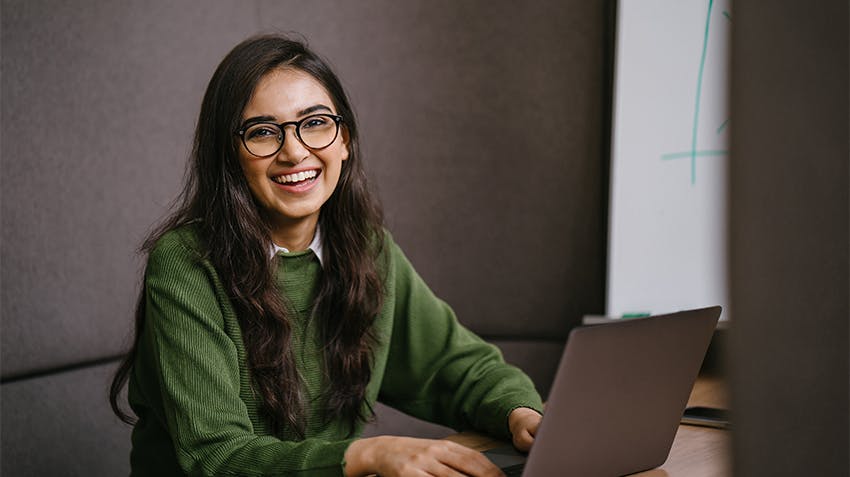
What were your most significant learning points?
I was taught to write in a way that would attract a typical everyday reader. Moreover, I learned to work under pressure while editing feature articles.
I think it was a significant learning point to recognize that there are some topics that I might feel uncomfortable with writing about. There are going to be moments when I would rather hide in my room and not tackle a project, but I know I will feel so much better after I get to work.
Also, there are sometimes going to be dead moments within work. Some weeks I will get a lot done and will receive a lot of support, and other times I find myself struggling to find an opportunity to research and publish something worth analyzing.
I think, in terms of the future, I should not feel shy about writing what interests me. But at the same time, I should be aware of the fact that the world will not always work the way I want it to, so I must adjust when necessary without feeling pressured to change my interests.
Overall, this remote internship taught me how to not let distance affect my communication skills with editors working on the other side of the world. I think I managed the distance pretty well!
Ready to start planning your own internship abroad? Here’s how to started!
Our step-by-step guide on how it works provides you with more information on how to get started. The process is user friendly - just submit your application to get the ball rolling. It doesn’t cost anything to apply and won’t take more than 5 minutes. However, your formal expression of interest provides the foundation for us to help you take the next steps.
